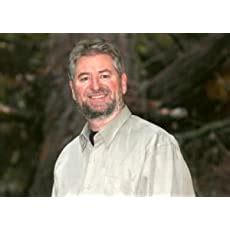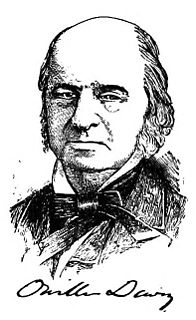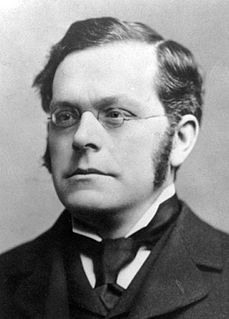Top 137 Maxims Quotes & Sayings - Page 3
Explore popular Maxims quotes.
Last updated on April 15, 2025.
Atheism in legislation, indifference in matters of religion, and the pernicious maxims which go under the name of Liberal Catholicism are the true causes of the destruction of states; they have been the ruin of France. Believe me, the evil I denounce is more terrible than the Revolution, more terrible even than The Commune. I have always condemned Liberal Catholicism, and I will condemn it again forty times over if it be necessary.
We know that uncertainty creates anxiety and sometimes desperate attempts to find something to believe in. Uncertainty engenders real opportunity as well as misleading choices, great leaders as well as false messiahs, and new ways of understanding the world alongside hollow maxims and deceptive promises. Understandably, we seek guides and guideposts to ease the anxiety of the journey. But we also need to depend on our own insights and imagination to cultivate, from our own experience, a way to move forward.
Men cannot labor on always. They must have intervals of relaxation. They cannot sleep through these intervals. What are they to do? Why, if they do not work or sleep, they must have recreation. And if they have not recreation from healthful sources, they will be very likely to take it from the poisoned fountains of intemperance. Or, if they have pleasures, which, though innocent, are forbidden by the maxims of public morality, their very pleasures are liable to become poisoned fountains.
From the earliest times man has been engaged in a search for general rules whereby to turn the order of natural phenomena to his own advantage, and in the long search he has scraped together a great hoard of such maxims, some of them golden and some of them mere dross. The true or golden rules constitute the body of applied science which we call the arts; the false are magic.
When the great religious and philosophical conceptions were alive, thinking people did not extol humility and brotherly love, justice and humanity because it was realistic to maintain such principles and odd and dangerous to deviate from them, or because these maxims were more in harmony with their supposedly free tastes than others. They held to such ideas because they saw in them elements of truth, because they connected them with the idea of logos, whether in the form of God or of a transcendental mind, or even of nature as an eternal principle.
Kant regards the universalizability test for maxims as focused on a very special sort of situation: one where the agent is tempted to make an exception to a recognized duty out of self-preference. The universalizability test is supposed help the agent to see, in a particular case of moral judgment, that self-preference is not a satisfactory reason for exempting yourself from a duty you recognize. Kant thinks, as a matter of human nature, that this situation arises often enough and that we need a canon of judgment to guard against it.
A small knowledge of human nature will convince us, that, with far the greatest part of mankind, interest is the governing principle... Few men are capable of making a continual sacrifice of all views of private interest, or advantage, to the common good. It is vain to exclaim against the depravity of human nature on this account; the fact is so, the experience of every age and nation has proved it and we must in a great measure, change the constitution of man, before we can make it otherwise. No institution, not built on the presumptive truth of these maxims can succeed.
But this inestimable privilege was soon violated: with the knowledge of truth the emperor imbibed the maxims of persecution; and the sects which dissented from the catholic church were afflicted and oppressed by the triumph of Christianity. Constantine easily believed that the heretics, who presumed to dispute his opinions or to oppose his commands, were guilty of the most absurd and criminal obstinacy; and that a seasonable application of moderate severities might save those unhappy men from the danger of an everlasting condemnation.
Muhammad brought down from heaven and put into the Koran not religious doctrines only, but political maxims, criminal and civil laws, and scientific theories. The Gospels on the other hand, deal only with the general relations between man and God and between man and man. Beyond that, they teach nothing and do not oblige people to believe anything. That alone, among a thousand reasons, is enough to show that Islam will not be able to hold its power long in ages of enlightenment and democracy, while Christianity is destined to reign in such ages, as in all others.
The art of the indirect approach can only be mastered, and its full scope appreciated, by study of and reflection upon the whole history of war. But we can at least crystallize the lessons into two simple maxims- one negative, the other positive. The first is that, in face of the overwhelming evidence of history, no general is justified in launching his troops to a direct attack upon an enemy firmly in position. The second, that instead of seeking to upset the enemy's equilibrium by one's attack, it must be upset before a real attack is, or can be successfully launched
Everyone should avoid familiarity or friendship with anyone suspected of belonging to masonry or to affiliated groups. Know them by their fruits and avoid them. Every familiarity should be avoided, not only with those impious libertines who openly promote the character of the sect, but also with those who hide under the mask of universal tolerance, respect for all religions, and the craving to reconcile the maxims of the Gospel with those of the revolution. These men seek to reconcile Christ and Belial, the Church of God and the state without God.
Muhammad professed to derive from Heaven, and he has inserted in the Koran, not only a body of religious doctrines, but political maxims, civil and criminal laws, and theories of science. The gospel, on the contrary, only speaks of the general relations of men to God and to each other - beyond which it inculcates and imposes no point of faith. This alone, besides a thousand other reasons, would suffice to prove that the former of these religions will never long predominate in a cultivated and democratic age, whilst the latter is destined to retain its sway at these as at all other periods.
There exists in the economy and course of nature, an indissoluble union between virtue and happiness; between duty and advantage; between the genuine maxims of an honest and magnanimous policy, and the solid rewards of public prosperity and felicity; since we ought to be no less persuaded that the propitious smiles of Heaven can never be expected on a nation that disregards the eternal rules of order and right, which Heaven itself has ordained.
We fought a military war; our opponents fought a political one. We sought physical attrition; our opponents aimed for our psychological exhaustion. In the process we lost sight of one of the cardinal maxims of guerrilla war: the guerrilla wins if he does not lose. The conventional army loses if it does not win. The North Vietnamese used their armed forces the way a bull-fighter uses his cape to keep us lunging in areas of marginal political importance.
A magazine editor recently asked me to sit down on my 40th birthday and write an article on the most important things I had learned in my first 40 years. I told him that the chief thing I had learned was that the copybook maxims are true, but that too many people forget this once they go out into the heat and hustle and bustle of the battle of life and only realize their truth once one foot is beginning to slip into the grave. The man who has won millions at the cost of his conscience is a failure.
And what is true education? It is awakening a love for truth; giving a just sense of duty; opening the eyes of the soul to the great purpose and end of life. It is not so much giving words, as thoughts; or mere maxims, as living principles. It is not teaching to be honest, because 'honesty is the best policy'; but because it is right. It is teaching the individual to love the good, for the sake of the good; to be virtuous in action because one is so in heart; to love and serve God supremely, not from fear, but from delight in his perfect character.
The true historian, therefore, seeking to compose a true picture of the thing acted, must collect facts and combine facts. Methods will differ, styles will differ. Nobody ever does anything like anybody else; but the end in view is generally the same, and the historian's end is truthful narration. Maxims he will have, if he is wise, never a one; and as for a moral, if he tell his story well, it will need none; if he tell it ill, it will deserve none.














